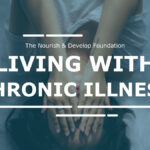Guilt is the word we use to describe our feelings of shame, anxiety,
frustration, and embarrassment that are related to our thoughts or actions, whether taken or perceived to be, accidentally or intentionally, that of which we deem as wrong. It is a self-conscious emotion that can hold great power over us. Guilt is helpful when it serves a purpose, such as signaling us to regulate our moral behaviour or to maintain our relationships. However, guilt may show up in unproductive forms, causing unwarranted distress from events that are out of our control, interfering with daily life. Today we will talk about how to deal with the different types of guilt to prevent it from becoming a burden.
SIGNS
- Anxiety
- Crying
- Insomnia or trouble sleeping
- Regret
- Worry
- Rumination
- Muscle tension
- Upset stomach
- Headache
Common Causes
- Surviving trauma or disaster
- Conflict between personal values and choices you’ve made
- Mental or physical health concerns
- Thoughts or desires you believe you shouldn’t have
- Putting your own needs first before taking care of others
- Rooted in upbringings or pressures from family, religion, culture, society, etc.
TYPES OF GUILT
- Natural
Immediate and specific
Natural guilt exists when it serves a functional purpose: to warn us that we need to take an action to apologize for or to change our behaviour. The guilt experienced should be proportionate to the situation like feeling bad for lying, cheating, or causing harm to someone, and should subside once it has been remedied as best as possible and in a timely manner.
Ex. You feel bad about denting your brother’s car, so you apologize and offer to pay for the damage you caused.
- Maladaptive
Persistent and harmful
Maladaptive guilt is a toxic form of guilt: one that has no rational purpose because it makes us feel bad for something we have no control over or when natural guilt festers despite intervention. It can have an overwhelming, negative impact over our lives, creating a persistent belief that we have done something wrong, or we will inevitably do something wrong. Rather than recognizing an individual thought or behaviour as ‘bad’, it can turn into shame which perceives the entire self as tainted or undeserving.
Ex. You feel responsible for a coworker losing their job when there is no evidence to support your involvement in the event.
- Existential
Social and political
Existential guilt can be looked at as a source of empathy: the feelings we have about the injustices in the world like poverty, animal abuse, climate change (merge with link to: https://www.tndf.ca/our-changing-climate/ ), and even our own privilege when we know others are suffering. This can help us recognize the connection we have to earth and motivate us to treat it and others kindly but can become maladaptive when we relate systemic inequities to our own personal failures.
Ex. You volunteer your time to a homeless shelter to give back to the community.
MENTAL HEALTH EFFECTS
People who experience chronic guilt (or maladaptive guilt) are at a higher risk to develop depression, anxiety, and other mental illnesses. It can negatively affect worth and self-esteem, causing one to be on edge, to be overly clingy or apologetic, and make them feel like they don’t deserve to move on. Some may self-isolate to avoid the possibility of doing something wrong or make no effort to change problematic behaviour because they feel prone to make mistakes.
Tips for Managing
Name It
Unaddressed guilt can build up and intensify, making you feel worse after time. Accept the feelings you have and try to explore what they are trying to tell you. Try taking the following steps to work towards processing them.
Make Amends
Address the person you hurt, apologize for your actions, let them know how you will do better, and ask if there is anything you can do now that will help. You cannot expect forgiveness to be granted, but by acknowledging your role, expressing remorse, avoiding making excuses, and committing to change, it can be a healing process for you. If you don’t have the opportunity to speak to who you harmed, write out your amends.
Learn From Mistakes
You cannot change the past, but can you identify what you would do differently next time around? Were there other factors that played a role? What triggers can you be aware of? No one is perfect but you can make a conscious decision to try to do better.
Forgive Yourself
Take responsibility for your actions but move on after you’ve made amends. If the roles were reversed, how would you treat a person in your situation? You deserve the same kindness you would give to someone else. Hold your ground and be assertive when people seek to try to make you feel unwarranted guilt.
Talk to Someone
Do not internalize guilt. Having social support is a pivotal role in coping with difficult emotions in general, as outside perspective can be helpful, but when intrusive thoughts or behaviours turn into a guilt complex there may be abuse, trauma, or depression that requires being worked through with a professional to challenge your own standards, change thinking patterns, and explore coping strategies. One of the best treatments for this is Cognitive Behavioural Therapy.
“Guilt can either hold you back from growing or it can show you what you need to shift in your life.”
Resources
Coping with Guilt and Shame Resources
Sources
https://www.healthline.com/health/mental-health/how-to-stop-feeling-guilty#name-your-guilt
https://www.verywellmind.com/guilt-complex-definition-symptoms-traits-causes-treatment-5115946
https://www.yogajournal.com/yoga-101/philosophy/goodbye-guilt/



